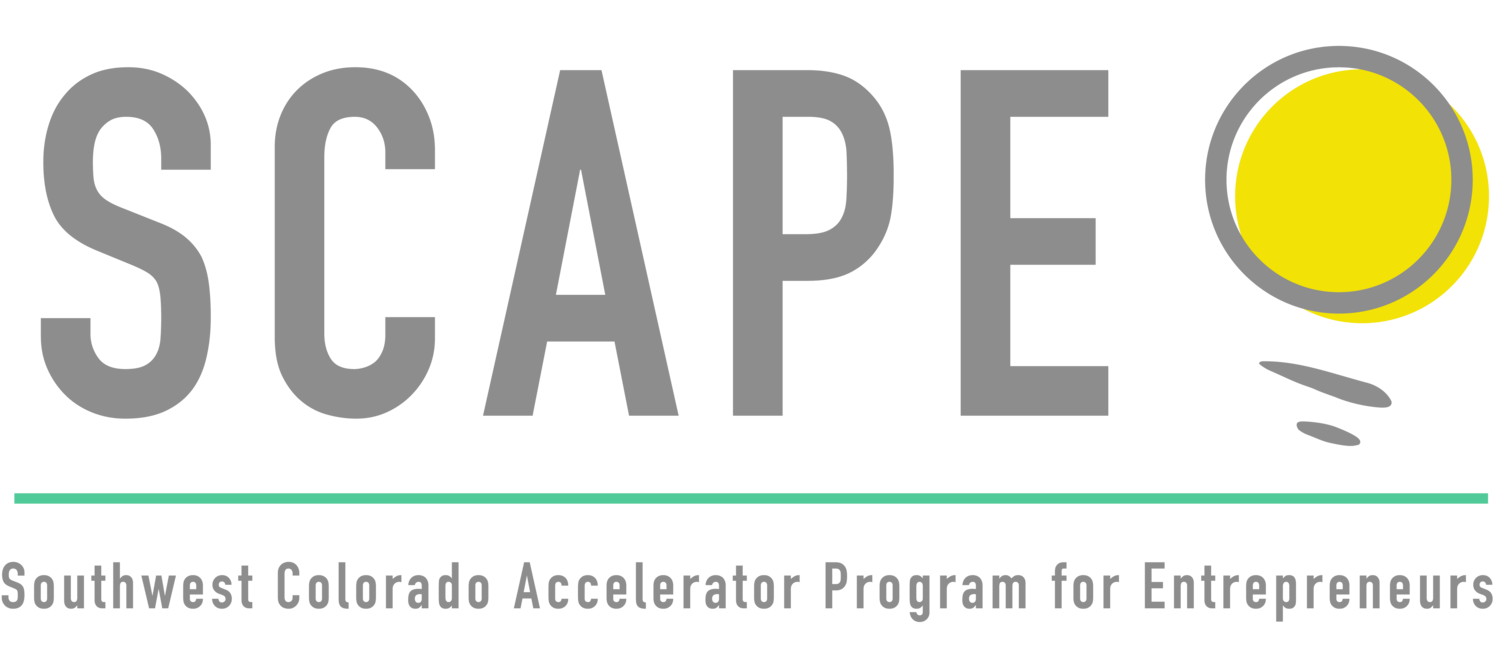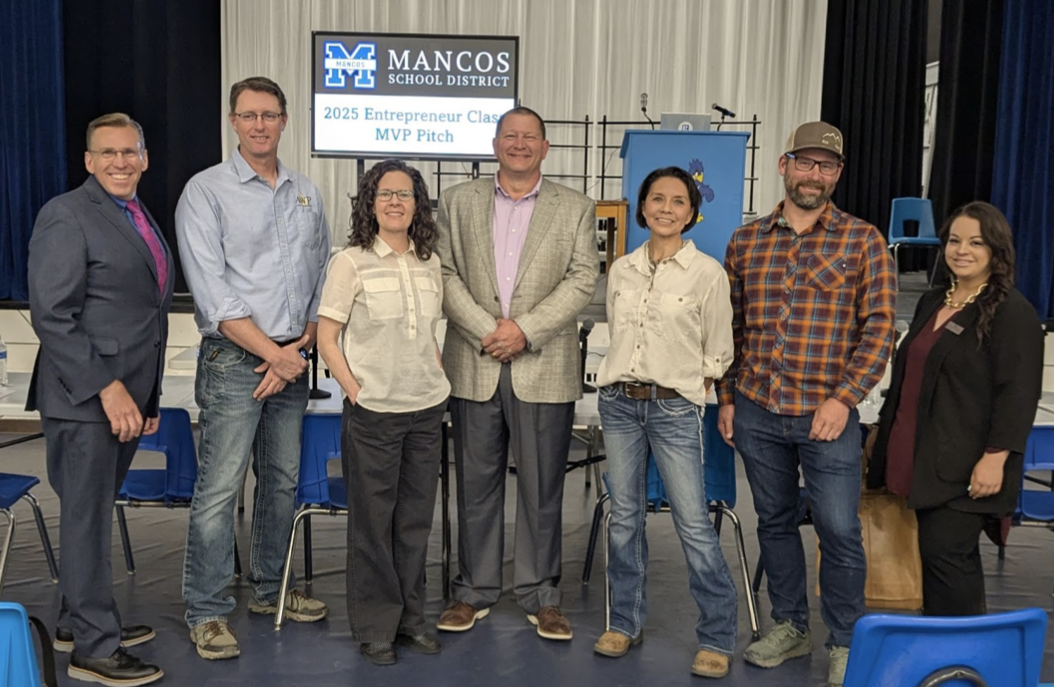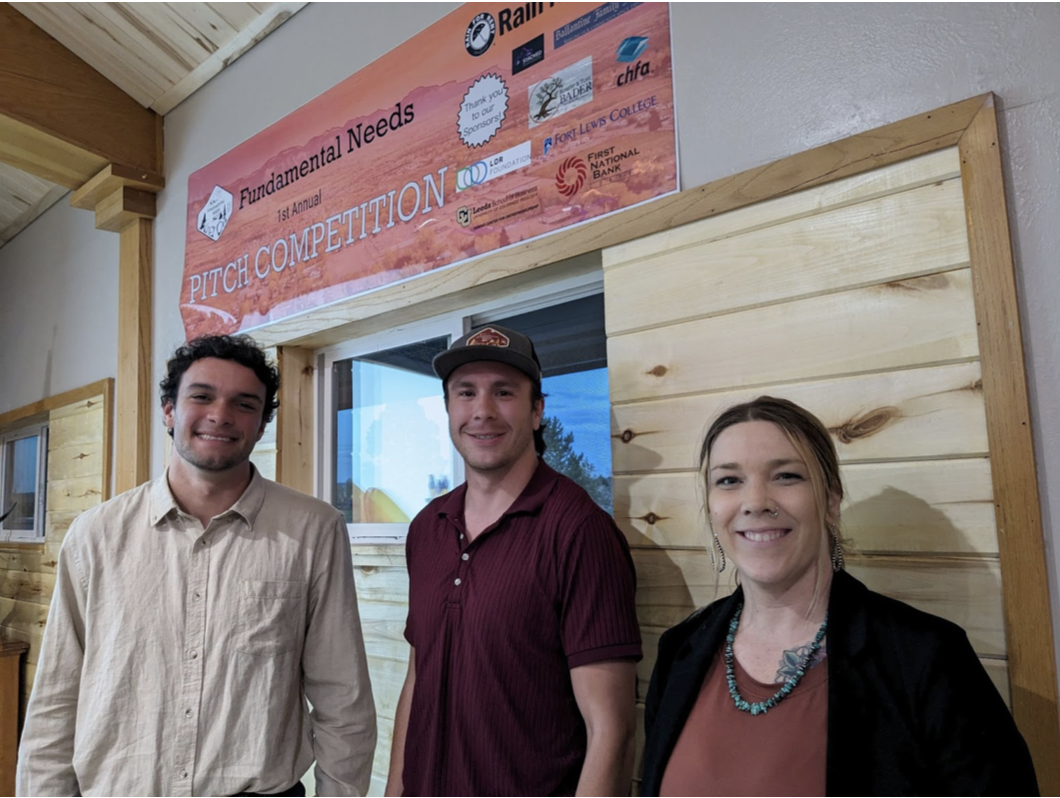What Do Million-Dollar Startups and Teenagers Have in Common? The Hidden Power of Not Being Risk-Averse.
Four and a half months into my role as Executive Director at SCAPE, I’m thinking about a lot of things, but one that keeps making its way into my brain space is the powerful opportunity we have to foster entrepreneurial mindsets early on. By the time I see pitch decks founders are well into their careers. How can youth and entrepreneurial pursuits help generate innovative local opportunities, empower young people to stay in the area and become founders who create stable, high-growth jobs or actively choose to return to our communities during their peak career-building years?
Conventional wisdom tells us that success in business and life requires careful, measured steps and years of accumulated wisdom. However, the most valuable asset for a disruptive entrepreneur is the willingness to take a seemingly irrational leap—a trait developmentally hardwired in the teenage brain.
A founder’s million-dollar idea is rooted in using their unique skills to provide a desirable transformation for their customers. But the decision to start that company—to jump from the safety of a job to the uncertainty of a startup—is fundamentally a risk-taking behavior. It is the conscious acceptance of the possibility of failure for the sake of outsized rewards.
Developmentally, the adolescent brain's prefrontal cortex (the "risk assessor") is still maturing, while the limbic system (the "reward seeker") is fully active. This creates a powerful, biologically driven engine for risk-taking and novelty-seeking. This is often framed as a deficit, maybe even recklessness. But viewed through the economic lens of entrepreneurship, it is the essential engine for disruptive thinking.
The entrepreneurial decision to pursue a transformative idea is the economic equivalent of an adolescent's brain chemistry: accepting high risk for the potential of high reward. How often do we let conventional wisdom squash this impulse instead of channeling it, rigorously?
My experience as a student demonstrated that school was for academic preparation and the business world was for adults with degrees and capital. But some of the best preparation for my career paths was my relationships with mentors who let me participate in their world of work and tasked me with things that actually mattered to their customers. Helping create an inventory system for a boutique retail business that catered to dance students and dance troupes played to my natural ability to organize and improved the shop owner’s visibility for merchandise. My employment in that store allowed me to shadow a professional, build trust which led to more responsibility, and experience how to take guidance, feedback, and encouragement in a safe setting. Did I mention I was fifteen? In every job along my career path since then, including owning a business, I have mentored youth and emerging professionals in hopes of fostering the same opportunities I received by having mentors lead the way. A successful career—whether as a founder or an employee—is the experimentation that turns inherent risk-taking into calculated, valuable action.
A million-dollar idea can start with a zero-dollar budget by monetizing an existing skill. Similarly, a student's initiation into business does not have to be a multi-million-dollar IPO. It can be a "small business" precursor—a side hustle, a freelance service, or a project to fill a specific community need. This process of using their existing skill set to solve a market problem is crucial.
We can teach youth to view their risk-taking not as a grand company launch, but as a series of low-stakes, high-learning experiments. Launching a small service (graphic design for local businesses, tutoring, organizing a community event) helps them practice the financial rigor of discovering the perceived value and net gain of their product or service.
A small business is a safe space for students to practice a calculated entrepreneurial risk. It transforms their developmental inclination for risk into a functional model for value creation.
What makes a company scalable is not just the product, but the founder’s ability to interact with the world. This same human-centered ability is the single most desired trait in today’s dynamic job market. The more youth get to experience having an entrepreneurial mindset, the more they get to practice developing durable skill sets. Think of skills that transfer across companies and industries, combining self-initiation, problem solving, creativity, effective communication, data literacy, financial literacy, leadership, and some good old fashioned grit (aka rigor and resilience). Students who have gone through the entrepreneurial thought process—even if they never launch a business—have a distinct advantage to become sought-after employees because they possess the durable skills employers desperately seek today. And, the more likely students will rise to the occasion when opportunities knock.
I’ll share a few fantastic examples of programs in our region that are fostering the entrepreneurial mindset. This list isn’t comprehensive but it highlights those that I can speak about from personal experience with the program or that SCAPE has sponsored. Mancos High School (Go BlueJays!) offers an entrepreneurship program through its Business Pathways, which includes courses like Business Incubator and a multi-year Entrepreneurship track. The program gives students real-world experience in business fundamentals, marketing, and management, culminating in a pitch event where they present their ideas to a panel of local “investors” for actual cash! Being a judge on the panel multiple times I’m struck by the same take away. If these students don’t go on to become founders they will certainly be rock star employees for the company who hires them! The skills required to make an idea enjoyable and scalable for a founder are remarkably similar to communication and human-centered problem-solving skills that make an employee indispensable in a dynamic organization. The entrepreneurial student is the ideal candidate for our future workforce; with a refined, and highly valued, set of human skills.
Southwest Open High School in Cortez, in collaboration with the non profit Fundamental Needs, runs an entrepreneurship program focused on career-ready business skills. Fundamental Needs recently opened a maker space in downtown Cortez. Pitch events are held here and provide opportunities for youth and adults to hone their elevator speeches and go to market strategies.
Durango High School's entrepreneurship education is integrated into its Career and Technical Education (CTE) programs, such as those at the IMPACT Career Innovation Center, where students can manage a business like CTE Event Services. The school offers courses like "Intro to Agriculture," which includes "Agricultural Entrepreneurship," and other business-related classes that foster entrepreneurial skills like problem-solving, planning, and financial literacy. Additionally, the school developed a Portrait of a Graduate plan that emphasizes skills that are core to entrepreneurship like innovation and adaptability. Fort Lewis College developed a business plan competition named Hawk Tank. Three tracks offer regional high school students, college students, and recent alumni the chance to win startup funding and develop the entrepreneurial skills they need. San Juan College and Fort Lewis often have a great show down. Additionally, San Juan College has five pillars for strategic direction through 2027. One of those is to increase education access and attainment through robust K-12 college/university and employer partnerships that prepare students for existing and future workforce and industry needs. To that end, they host relevant events including a Career Paths Expo for 8th graders. It garners 40 employers, 100+ volunteers, and 1600 students get to explore 7 career pathways. This is AWESOME! Then there is National Signing Day, modeled after NCAA’s National Signing Day for athletes who commit to play sports in college, NC3 National Signing Day is a national event that celebrates first-time students who are planning to enter a Career Technical Education (CTE) program in the summer or fall of 2025.
And if you’re a company looking for a way to engage with potential interns or you’d like to mentor or contribute in another way, the Southwest Education Collaborative offers a platform exactly made for this! Career Launch Southwest is a virtual tool that connects industry with our region’s students to promote workforce development. Any business or organization that wants to participate to help expand work based learning opportunities in Southwest Colorado is eligible to participate.
Most of the businesses in Southwest Colorado have fewer than 20 employees. Yet, the region depends on these small businesses, which contribute significantly to local economic activity and employment, while also being involved civic actors that invest money back into the community and serve in many facets of community art, culture, and heritage that make our corner pocket of the state a place people want to live, work, and recreate. Healthy ecosystems attract and encourage entrepreneurship and support business growth. As small businesses grow, their impact on the local economy expands as they provide additional financial support and spending in the community, innovation, and new jobs.
The future of our regional economy hinges on our ability to foster healthy ecosystems for innovators, founders, and small business owners. One way to do this is tuning into adolescent risk-taking not as a deficit to be managed, but as a powerful, biological engine for economic innovation. By deliberately channeling this developmental inclination into structured, low-stakes entrepreneurial practice—whether through high school programs, college competitions, or community mentorship—we are doing more than just training future founders. We are refining human-centered skills that make employees indispensable and we are creating a pool of highly-valued talent ready to drive growth in any sector. The entrepreneurial mindset is one of the most durable skill sets of all, and by fostering it early, we empower our young people to be the innovators and sought-after employees who will impact economies in Southwest Colorado.




